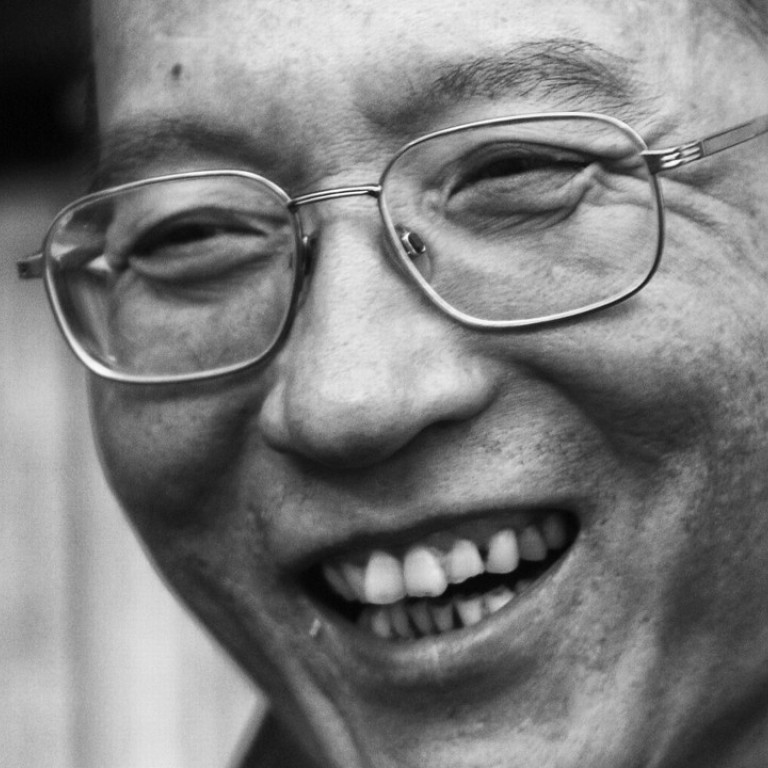
‘Live on well’: fury, farewells and Nobel laureate Liu Xiaobo’s last words to his wife
Friends, fellow activists and supporters hail the life and work of Liu Xiaobo as Western governments step up calls for his wife to be allowed to leave China
Chinese Nobel Peace Prize laureate Liu Xiaobo, who spent more than a decade in prison for promoting democracy, freedom and human rights, lost his battle with liver cancer on Thursday.
Justice authorities in Shenyang, Liaoning province, announced in a statement that Liu, 61, died in hospital of multiple organ failure.
Addressing overseas media in Shenyang late on Thursday, Liu’s doctors said Liu died at 5.35pm and was surrounded by wife Liu Xia, his elder brother Liu Xiaoguang and younger brother Liu Xiaoxuan.
The hospital said Liu’s final words to his wife were: “Live on well.”
The doctors also said the activist’s cancer was a “special” type that expanded “very quickly within a week”.
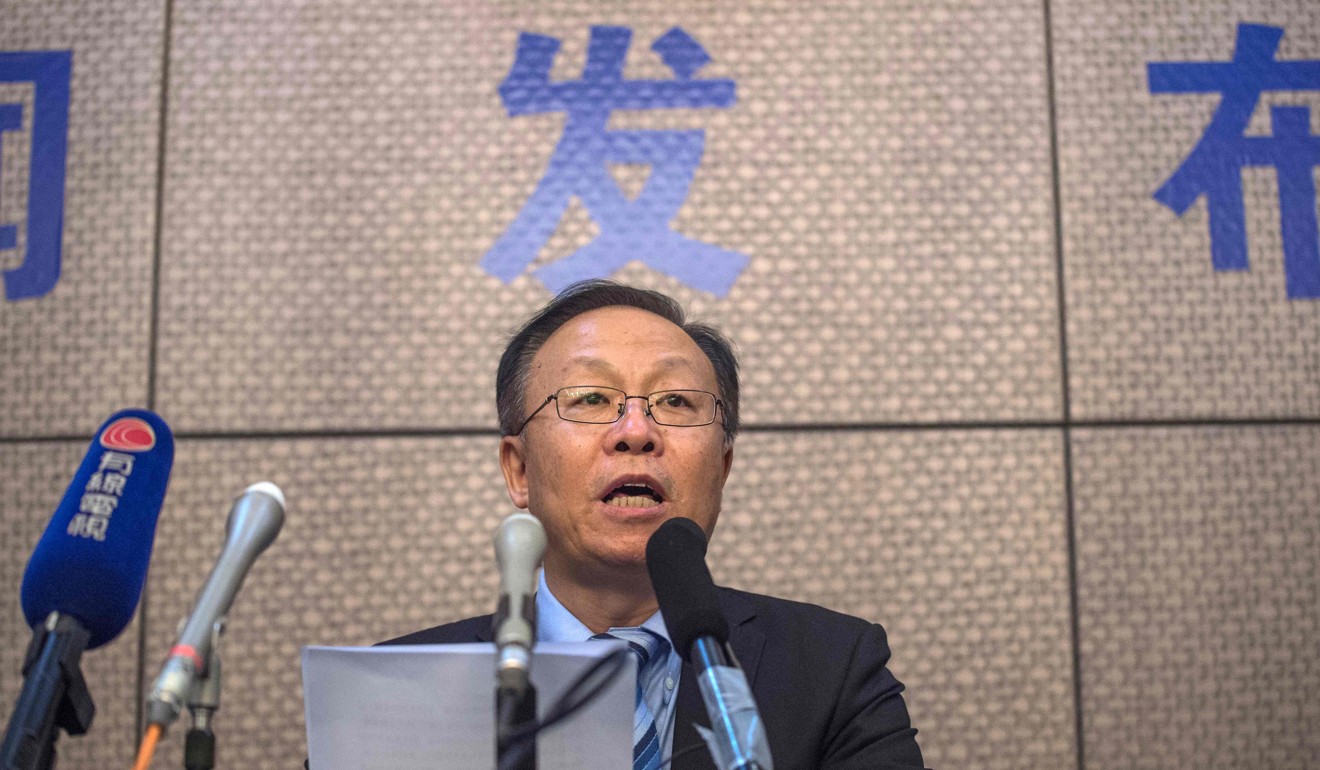
News of Liu’s death prompted an outpouring of grief and tributes from Liu’s friends as well as supporters around the world, including the Norwegian Nobel Committee, which awards the peace prize.
The US, German and French governments also pressed Beijing to lift travel restrictions on his wife and family.
Shenyang authorities announced the news of Liu’s death shortly after 9pm. State news agency Xinhua also issued a report of Liu’s death at about 10.37pm, adding the authorities had invited prominent Chinese doctors and experts from the United States and Germany to treat the dissident.
In Hong Kong, more than 100 people gathered outside Beijing’s liaison office turned a protest for Liu’s release into a vigil.
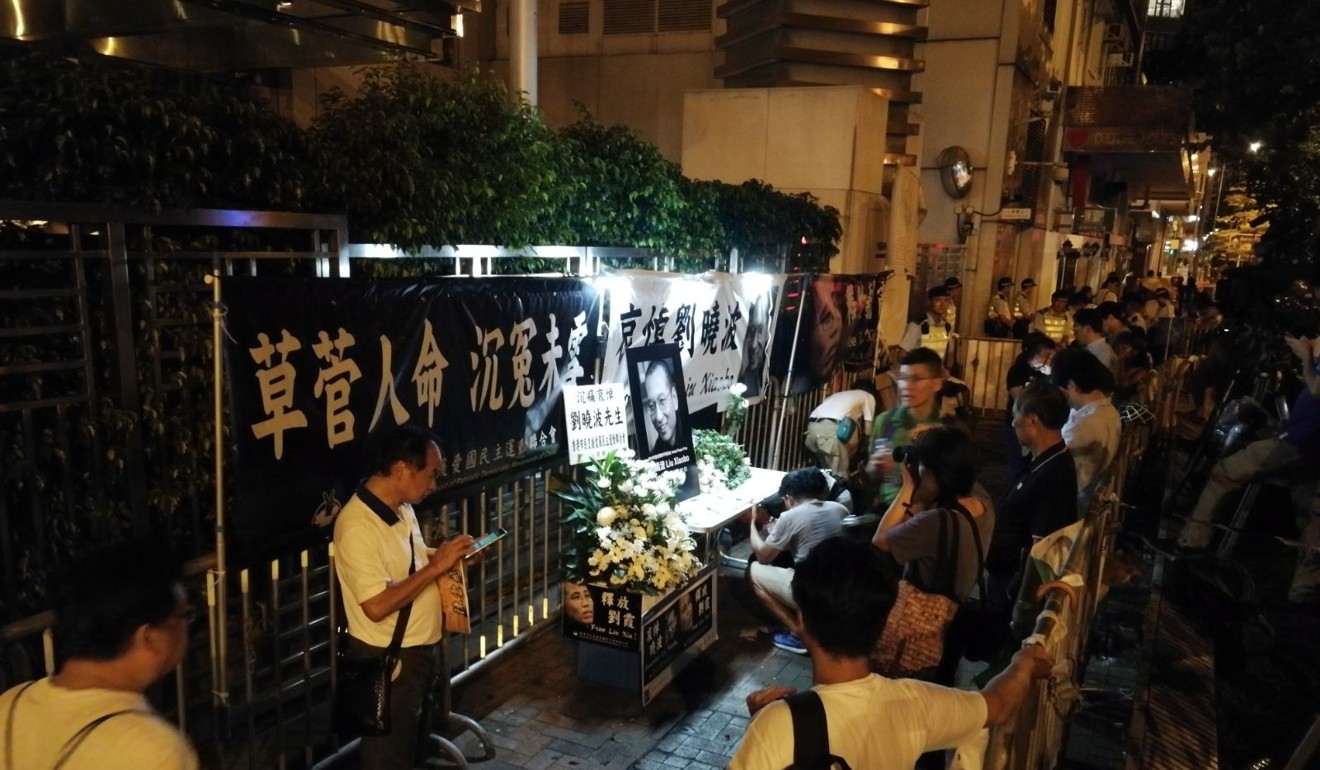
“Liu’s case shows that Beijing will hold its grip very tight despite international pressure. And we can foresee that Hong Kong’s road to democracy will get more difficult,” Hong Kong Human Rights Monitor director Law Yuk-kai said.
Despite appeals from family, friends and the international community, Liu died before realising his wish to receive treatment in Germany with his wife.
Liu is the second Nobel laureate to die in custody – the other was German pacifist Carl von Ossietzky, who died in a hospital under the Nazis in 1938.
Liu was arrested in late December 2008 for his part in drafting “Charter 08”, a pro-democracy manifesto advocating political reform on the mainland. He was sentenced to 11 years’ jail in 2009, and a year later,was awarded the Nobel Peace Prize.
He was diagnosed with late-stage liver cancer in late May after a “routine check-up”, according to the Shenyang Justice Bureau. But news of his illness did not become public until the end of June.
Beijing has since brushed aside international appeals to allow Liu to seek treatment abroad, saying he was getting the best possible care.
According to two friends in direct contact with Liu’s family, the activist fell into a coma early on Thursday but regained consciousness before lapsing into a coma again at about 11am.
Exiled Tiananmen student leader Wang Dan described Liu as “a great man who left us, a light extinguished”.
“This is the second June 4. This is a naked political murder,” Wang said, referring to the crackdown in 1989. “I hope the whole world will forever remember Xiaobo’s contribution to China’s progress.”
Wang said that in order to best remember the Nobel laureate, he and his friends would “bear the heavy burden left by Liu Xiaobo to continue the lifelong struggle for China’s democratisation” .
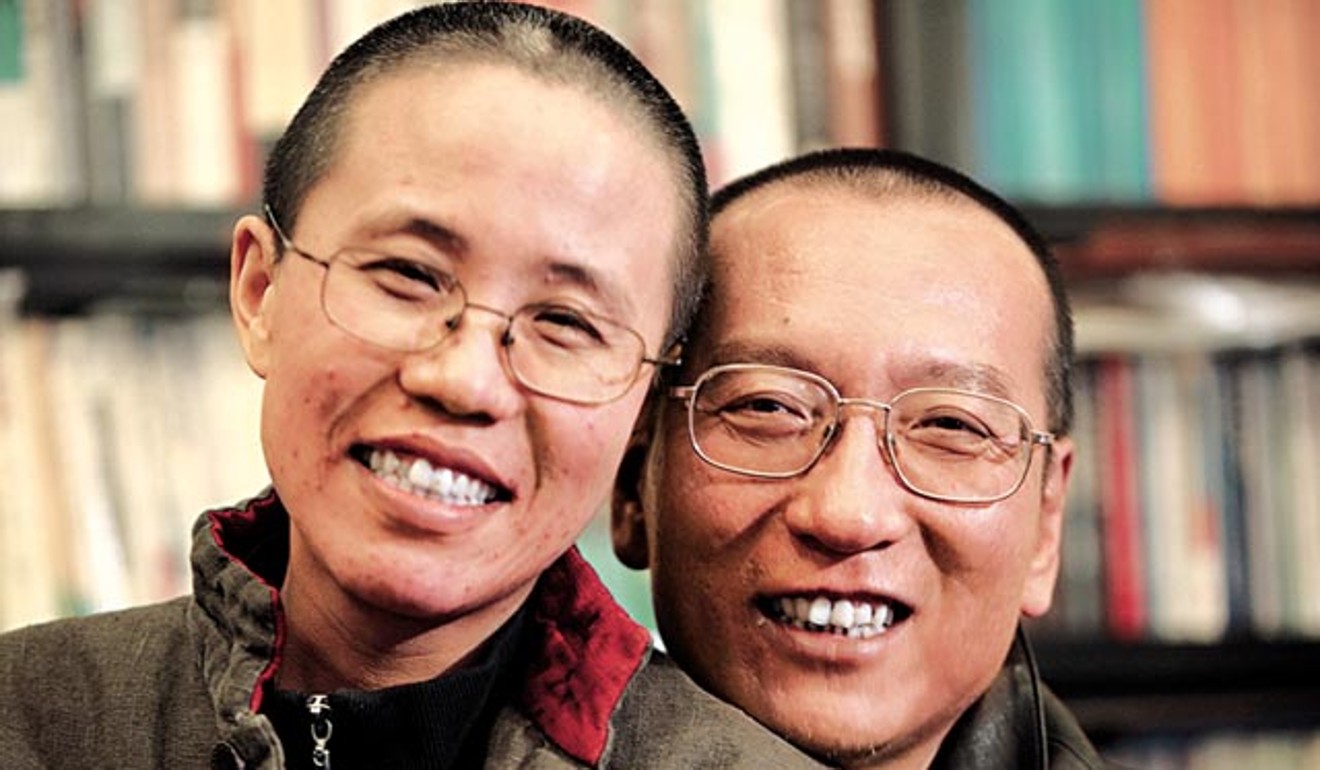
A group of 10 of Liu’s close friends issued a joint statement on Thursday night, saying the activist was “one of the most important voices of the contemporary freedom and human rights movement in China”. “[He] symbolised the Chinese people’s relentless struggle for freedom,” the friends said.
Bao Tong, a former top aide to late ousted state leader Zhao Ziyang, said Liu defined patriotism.
“The state may have convicted him of subversion, but it must be pointed out that he was a great patriot,” Bao said on Twitter.
Berit Reiss-Andersen, head of the Norwegian Nobel Committee, said the Chinese government bore a heavy responsibility for the laureate’s “premature death”.
“We find it deeply disturbing that Liu Xiaobo was not transferred to a facility where he could receive adequate medical treatment before he became terminally ill,” Reiss-Andersen said.
United Nations Secretary General Antonio Guterres said he was “deeply saddened” by Liu’s death.
Through a spokesman, German Chancellor Angela Merkel, said: “I mourn Liu Xiaobo, the courageous fighter for human rights and freedom of expression.”
Berlin and Washington also urged the Chinese authorities to let Liu’s relatives leave the country.
German Foreign Minister Sigmar Gabriel said China should allow Liu Xia and her brother to go to Germany or any other country they wished.
“China now has the responsibility to quickly, transparently and plausibly answer the question of whether [Liu Xiaobo’s] cancer could not have been identified much earlier,” Gabriel said.
US Secretary of State Rex Tillerson said he joined “those in China and around the world in mourning the tragic passing of 2010 Nobel Peace Prize Laureate Liu Xiaobo, who died while serving a lengthy prison sentence in China for promoting peaceful democratic reform”.
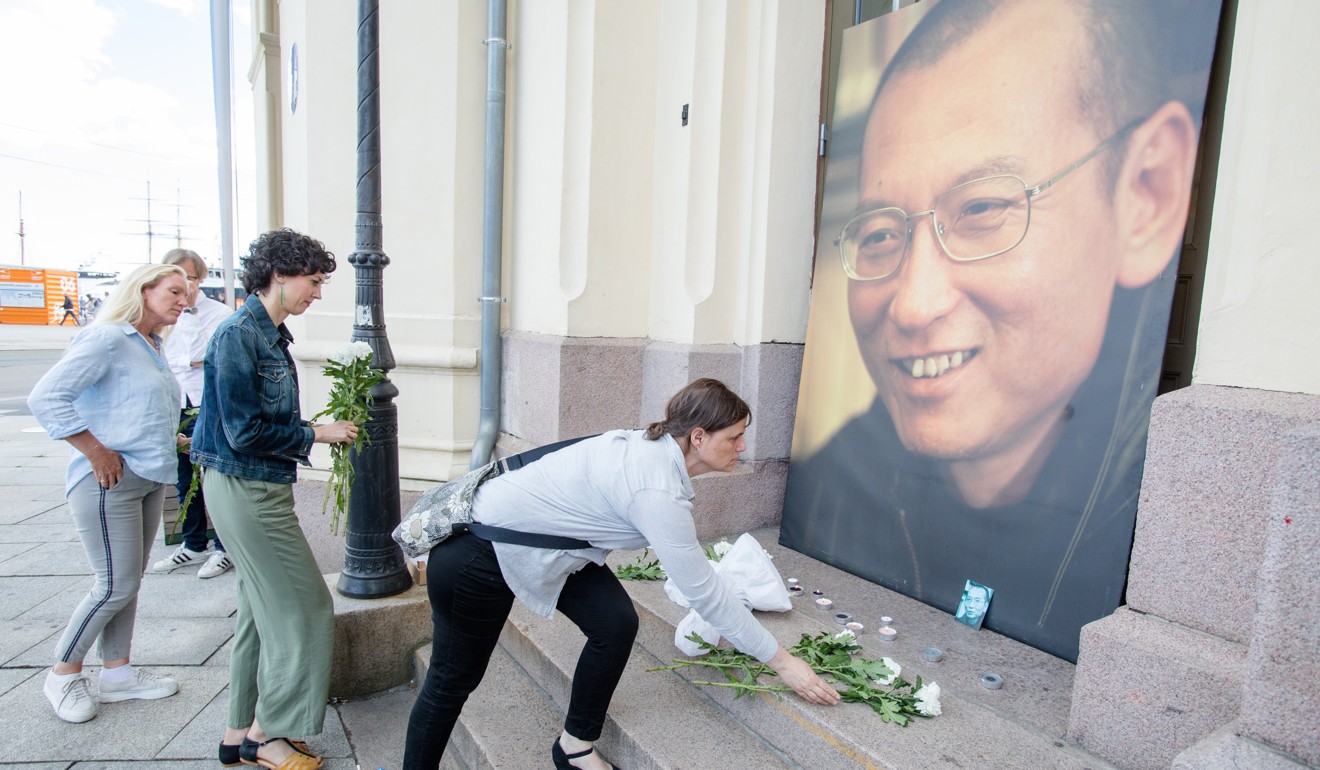
“I call on the Chinese government to release Liu Xia from house arrest and allow her to depart China, according to her wishes,” Tillerson said.
Wang and fellow dissident Hu Jia added their voices to calls to lift travel restrictions on Liu Xia, who was under virtual house arrest from 2010 until she was reunited with her husband at the Shengyang hospital last month.
“We [also] need to continue to push for Liu Xia’s freedom, and the unfulfilled dreams in Charter 08, in order to sustain the spirit of Liu Xiaobo,” Hu said.
Additional reporting by Xinqi Su, Ng Kang Chung, Reuters, Agence France-Presse


